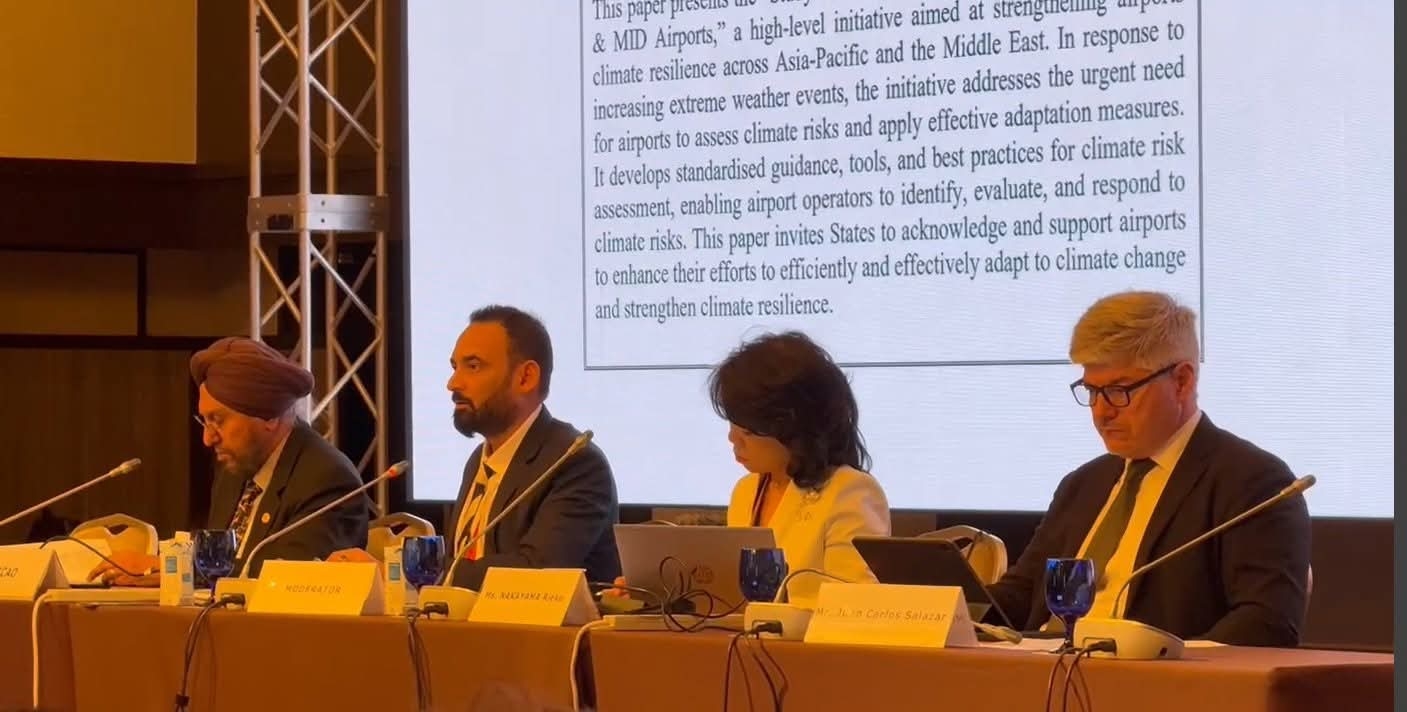

SENDAI (JAPAN): The Director General of Nepal’s Civil Aviation Authority (CAAN) is calling for urgent regional cooperation on climate change and aviation.
Speaking at the 60th DGCA-APAC conference in Japan, Director General Pradeep Adhikari warned that countries like Nepal—despite contributing “almost zero” to global carbon emissions—are already paying the price.
From melting glaciers to aviation disruptions, the effects of climate change are already hitting hard, Adhikari said, urging fellow Asian and Pacific nations to act together.
Adhikari, who moderated the session on Agenda Item 7: Aviation and Environment, said the urgency for practical and inclusive solutions had never been greater.
“Aviation is both an economic engine and a contributing factor to climate change,” Adhikari said in his opening remarks. “Nepal’s contribution to carbon emissions, including in aviation, is almost negligible. Yet, we are one of the most affected nations—with melting glaciers, glacial lake outbursts, flash floods, and increasingly erratic weather disrupting our aviation operations.”
Adhikari noted that eight of the world’s ten highest mountains, including Mt. Everest, lie in Nepal, a country witnessing its snow-capped peaks turning to bare rock due to warming temperatures. “The climate crisis does not respect borders, nor does it measure responsibility by emissions alone,” he added.
The session featured presentations aligned with ICAO’s Long-Term Aspirational Goal (LTAG) for net-zero carbon emissions by 2050, the latest progress on Sustainable Aviation Fuels (SAF), low-carbon aviation fuels, and cleaner energy technologies. Countries including Japan, Singapore, and industry bodies such as IATA and AAPA stressed the need to enhance CORSIA (Carbon Offsetting and Reduction Scheme for International Aviation) to serve as a credible and scalable emissions reduction mechanism.
India, Indonesia, and other participants emphasized regional capacity-building, with India also urging environmental harmonization policies—such as restrictions on single-use plastics—beyond fuels and infrastructure.
Nepal highlighted its use of renewable hydropower at all its airports, branding them as “green airports,” and called on other countries to prioritize equitable transitions and innovation. “While our aviation activity may be modest, the impacts we suffer are not,” Adhikari said. “Equity, innovation, and shared commitment will be essential in moving forward.”
The session concluded with a consensus that both high- and low-emitting countries must work in lockstep to achieve meaningful decarbonization in aviation across the Asia-Pacific region.